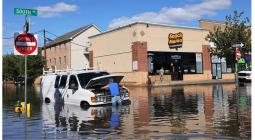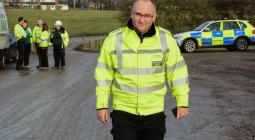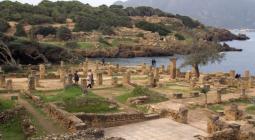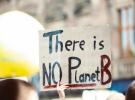What are conservative commentators saying about the floods and climate?
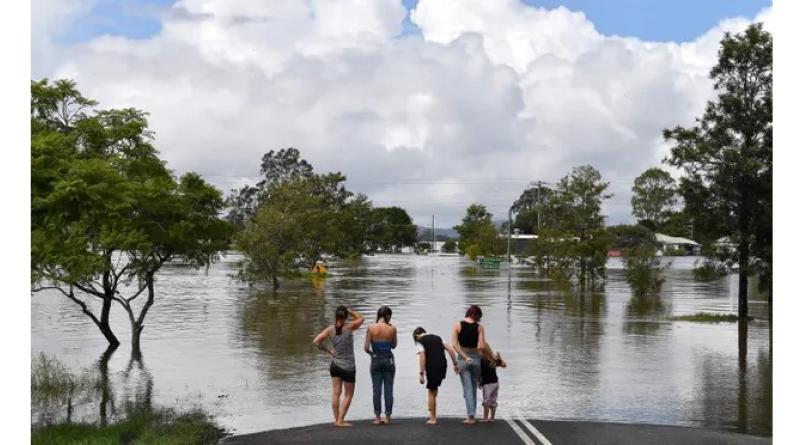
Floods and their causes are complicated and there has been a clamour for answers from Australians over the role global heating could have played in the devastation left along the east coast this week.
But one thing several of Australia’s conservative commentators are sure about is that the climate crisis had nothing to do with it.
On Sky News, Chris Kenny said Australia “always has, and always will have” floods, droughts and fires and, “allowing for some records”, the country had been through worse cases of those extremes before.
In the pages of the Herald Sun last Thursday, Andrew Bolt described how a set of “green journalists” were acting like “vultures” for “exploiting” the floods.
“This pathetic game of climate porn happens every time we get some natural disaster, wet or dry, fires or floods,” Bolt thundered.
Almost two weeks ago, the UN’s Intergovernmental Panel on Climate Change released its latest assessment of the impacts of climate change.
In interviews, IPCC authors in Australia said it was likely that rising levels of greenhouse gases in the atmosphere had played a role in the extreme rainfall that led to flooding.
“But hang on! Just a year ago this same IPCC suggested the opposite,” Bolt said.
Bolt claimed that last year’s IPCC report that looked at the core science of climate change had found heavy downpours tended to “decrease over the eastern and southern regions” of the country.
But this statement was referring to observations of the past, not the likely impacts in the future.
The same report included a fact sheet – not mentioned by Bolt – on findings for the Australian region, which said eastern Australia should expect “more extreme rainfall events” as the world warms.
Bolt wrote that climate change had been linked to drought, fires and now floods – as if climate change can’t have multiple affects.
“We can’t afford this con any more,” he said.
Prof Mark Howden, director of the Australian National University’s Institute for Climate, Energy and Disaster Solutions, is vice-chair of the IPCC working group that wrote the latest report.
He told Temperature Check: “The basic relationships between air temperature and moisture holding capacity and the linkage of this to extreme storms and floods are well known and have been for centuries. The projection of increased flood risk as atmospheric and ocean temperatures rise is robust.”
He said it would be wrong to ignore the role of climate cycles such as La Niña and El Niño on the risk of flooding and droughts, but “as is ignoring the basic physics which ties in the common factors between droughts and floods. This is climate science 101.”
Don’t actually ask farmers
Bolt rarely likes people to attribute anything to climate change but seemed unusually confident about one thing in his column.
Pointing to a record winter crop this year across Australia (but not pointing to how record November rainfall had caused widespread downgrades of wheat quality in New South Wales), Bolt wrote: “Global warming has actually been brilliant for our farmers.”
So in the same column Bolt argues both for and against attributing changes in weather conditions to climate change. Global warming is apparently only a thing when it’s doing something good.
But to the question of whether global warming is “good for farmers”. Really?
Back to the IPCC, which said last week it had “high confidence” that hotter and drier conditions would disrupt future agricultural production.
And what about flooding?
The NSW Farmers chief executive, Pete Arkle, told Temperature Check: “While there may be beneficial changes to some commodities in some areas in the short term, when we look more broadly at the trends and the impact of extreme weather events it is hard to be optimistic about the impact of climate change.
“Farmers are among those most exposed to the full impact of extreme weather, be that bushfires, floods or droughts. It is critical we take steps to minimise the impact of climate on agriculture, because we will all be impacted if there is reduced food security.”
Green tyranny?
There has been much conservative commentary in the past week over Russia’s bloody invasion of Ukraine, with some weaving a narrative that Europe’s pursuit of renewable energy and emissions reductions gave Putin the confidence to wage war (opportunistic, much?).
On Radio National’s Between the Lines, Tom Switzer invited Rupert Darwall on to talk about how the war might change commitments to net zero.
Anyone who suggested the world could do without fossil fuels was “out with the fairies”, said Darwall, presumably including the International Energy Agency and its detailed analysis of pathways to net zero among that throng of fantasists.
Switzer introduced Darwall as a researcher at the RealClearFoundation and twice mentioned he was “the author of The Age of Global Warming, a History”.
That book was published in 2013 and, while the benign title might not give it away, the book has been celebrated by climate science denialist groups.
Odd that Switzer didn’t mention Darwall’s 2017 book with a rather less benign title: Green Tyranny: Exposing the Totalitarian Roots of the Climate Industrial Complex.
Author:Graham Readfearn
Photograph: AFP/Getty Images


